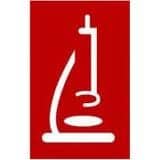Karius Inc, Redwood City, Calif, has demonstrated the ability of the Karius digital culture test to identify pathogens rapidly and accurately in immunocompromised patients after a stem-cell transplant. Results from the diagnosis of infection in stem-cell transplant patients over time (Discover) trial, a collaboration between Karius and researchers at the University of California, San Francisco, were recently presented at the American Society of Hematology annual meeting.
“The Discover trial demonstrates the utility of the Karius test in patients whose immune systems are weakened after a stem-cell transplant,” says Mickey Kertesz, PhD, chief executive at Karius. “We are excited to share these findings with the clinical community—identifying Staphylococcus aureus and Chlamydia trachomatis well before other testing methods did. Our goal is to create a single test that can quickly help physicians deliver a potentially life-saving diagnosis, especially in cases where time is critical.”
The study prospectively enrolled 20 stem-cell transplant patients to evaluate the Karius test for diagnosis and monitoring of infections over time. Patients had blood drawn for the Karius test prior to stem-cell transplantation, at regular intervals after transplantation, and at onset of fever episodes.
Results from the Karius test were then compared to the results obtained by conventional microbiologic tests. When compared to a conventional cytomegalovirus test, the Karius test showed 100% concordance (26 of 26) with results above the lower limit of quantitation for quantitative polyermase chain reaction. The Karius test was also able to detect Staphylococcus aureus sooner than a blood culture test, and detected Chlamydia trachomatis a full 30 days before identification by a targeted assay.
The pilot study demonstrates that the Karius test can identify many coinfections in stem-cell transplant patients. Use of the Karius test in such patients could result in earlier detection of pathogens, enabling timely targeted therapy for the vulnerable population.
“Diagnostic tests that accurately identify a breadth of potential pathogens are needed to inform more effective and targeted therapy,” says David Hong, MD, medical director at Karius. “The results of our trial show that the Karius test can identify a broad range of pathogens in stem-cell transplant patients using a single blood test. This and other ongoing trials indicate the potential for the Karius test to become a standard of care in helping doctors diagnose challenging cases, including fastidious pathogens and invasive fungal infections.”
The Karius test uses next-generation sequencing and analytics for the broad and rapid detection of microbial cell-free DNA through a standard blood draw. Unlike conventional culture and panel testing methods that identify a narrow range of pathogens, the Karius test can detect more than 1,250 pathogens, including bacteria, DNA viruses, and such eukaryotic organisms as mold, protozoa, and yeasts. Results are typically available within 1 day of sample receipt.
For more information, visit Karius.
REFERENCE
- Fung M, Seng H, Hollemon D, et al. The Discover trial: application of the Karius plasma next-generation sequencing test for pathogen detection in allogeneic stem-cell transplant patients [abstract no. 1937]. Presentation at the annual meeting of the American Society of Hematology, Atlanta, December 9–12, 2017. 2017;130(Suppl 1):1937.






